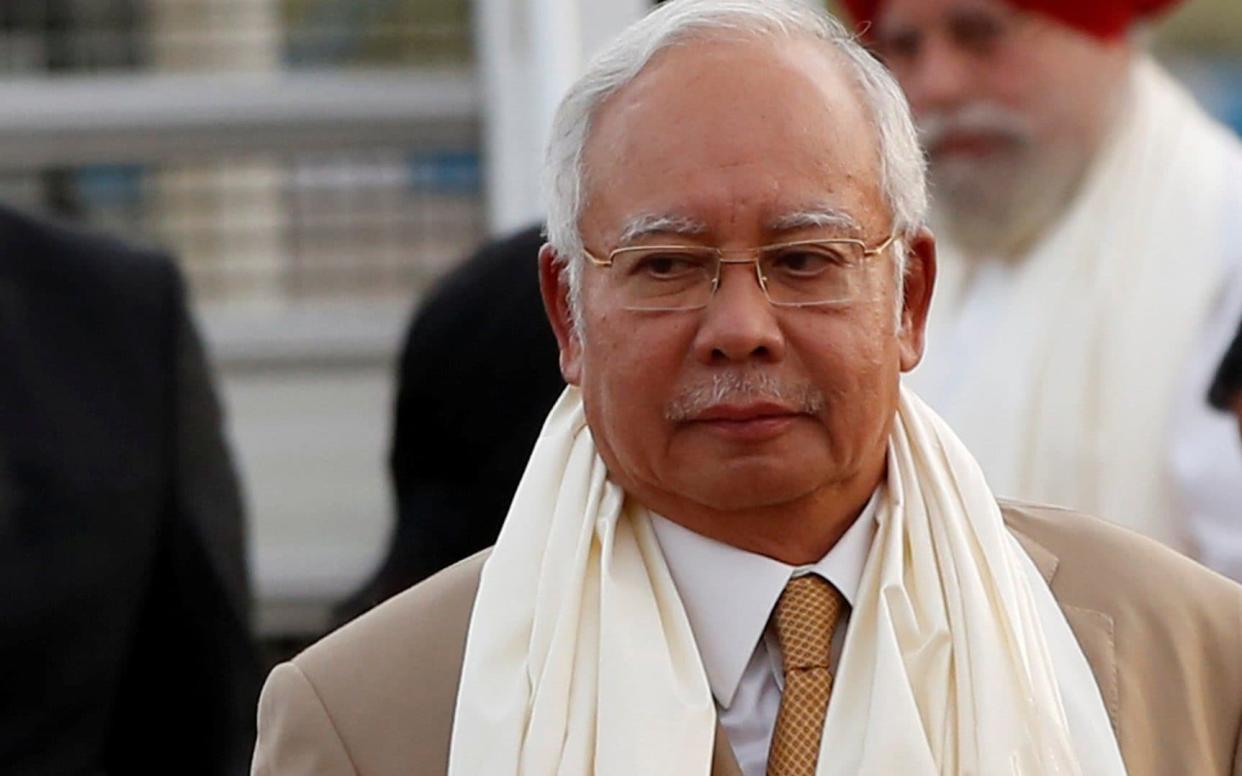Ten-year 'fake news' jail term proposed in Malaysia

Malaysia’s government plans to introduce a ten-year jail sentence for anyone who peddles fake news, in a new law that critics fear will be used to crack down on dissent ahead of an imminent general election.
Prime Minister Najib Razak's regime has been dogged by accusations in a multibillion-dollar corruption scandal involving an indebted state fund.
Mr Najib has denied any wrongdoing, but rights activists warn the law could be used to criminalise news reports on alleged government misconduct.
The anti-fake news bill, which was announced on Monday but which must be approved by parliament, has also raised concerns that it could be used to target government critics during the election campaign.
A general election must be held by August and is widely expected to be called in the next few weeks.
The bill calls for penalties of about £100,000 and a maximum ten-year jail term for those who create, offer, circulate, print or publish fake news and it extends to foreigners outside Malaysia as long as Malaysia or its citizens are affected.
Fake news: What exactly is it – and how can you spot it?
It defines “fake news” as “any news, information, data and reports, which is or are wholly or partly false, whether in the form of features, visuals or audio recordings or in any other form capable of suggesting words or ideas.”
Analysts have warned that the lack of clarity on how the new law would be enforced could lead to abuses.
“The danger is that this new bill, without stronger legal definitions and clearer safeguards, is just another tool for the Malaysian authorities to drag any critical comments under the rubric of fake news,” said Champa Patel, head of Asia-Pacific at London think tank, Chatham House.
“Malaysia already has a range of repressive laws used to undermine free speech... that have been used to silence the media, opposition figures and critics of the current government,” she said.
Phil Robertson, deputy Asia director for Human Rights Watch, described the new law as “the most crude election tactic, aimed at intimidating independent media in the country and activists and rights watchdogs everywhere.”
The government was trying to grant itself powers to “arbitrarily determine what people can say about Malaysia in the world,” he said, warning that it could be used to harass international organisations.
“Malaysia’s actions today should be condemned by nations worldwide, and warnings sent that there will be negative consequences if it persists in this effort to create a new frontier of media censorship.”

